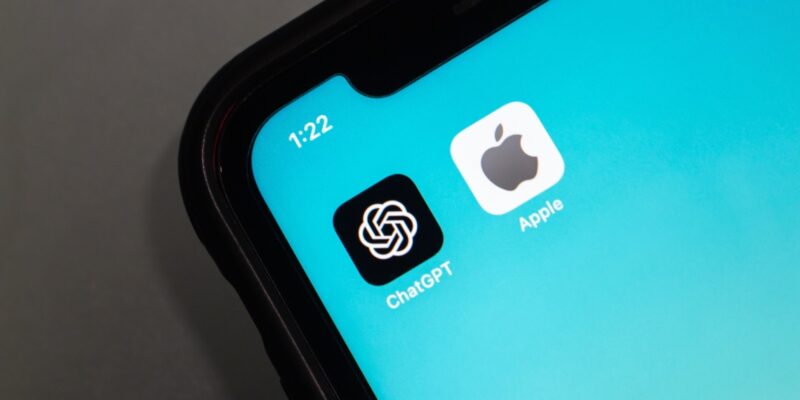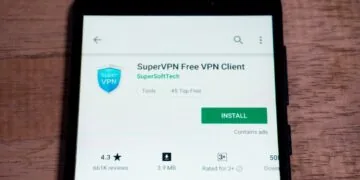
The highly anticipated ChatGPT app is here for iPhone users. While there’s a lot of excitement about the first official smartphone app for OpenAI’s chatbot, there are also some privacy concerns.
When users install the official ChatGPT app for iOS, they are greeted with a welcome message that includes a warning not to share “sensitive” information with the chatbot.
“Anonymized chats may be reviewed by our AI trainers to improve our systems,” OpenAI explains. This means that human reviewers may access users’ chats to assess the quality of the chatbot’s responses. While the company says chats are anonymized, they could still include private information that users share with the chatbot.
OpenAI’s privacy policy also states that it collects various data when users interact with the chatbot. Unfortunately, OpenAI doesn’t give users the choice to opt out of this.
Several companies, including Apple and Samsung, have banned ChatGPT in their workplaces over concerns that employees could share confidential data with the chatbot. In the case of Samsung, the ban followed reports that three engineers at the South Korean company shared source code with ChatGPT.
ChatGPT Privacy Concerns
OpenAI’s privacy policy appears to be transparent about its data collection. The company says it “may collect Personal Information that is included in the input, file uploads, or feedback that you [users] provide.”
OpenAI also collects usage data, including information about how you use the chatbot, “the types of content that you view or engage with, the features you use and the actions you take, as well as your time zone, country, the dates and times of access, user agent and version, type of computer or mobile device, computer connection, IP address, and the like.”
While many other apps and online services collect such data, the fact that users don’t have the choice to refuse to share this data is concerning.
OpenAI’s privacy policy says the company may share users’ personal information with third parties, including law enforcement, its affiliates, vendors, and service providers.
It’s unclear if OpenAI’s AI trainers also review audio files, but there’s a possibility that’s the case. Tech giants like Apple, Google, and Amazon have all faced backlash over the human review of voice assistant interactions, forcing them to provide an opt-out option for users.
In April, OpenAI added “incognito mode” to ChatGPT. When users activate this option, ChatGPT doesn’t save conversations to train its chatbot. But ChatGPT may still collect other personal data when users disable chat histories and chatbot training.
There’s also the issue of underage users. ChatGPT’s terms of service says users must be at least 13 years old to access its service. But, since OpenAI doesn’t verify users’ ages, users under 13 could easily sign up for the service. This means this company could be collecting and processing the data of minors in violation of several privacy laws, including the GDPR and COPPA.
The lack of age verification on ChatGPT was one of the issues Italy’s privacy regulator raised when it temporarily banned the app in March. ChatGPT added an age verification tool and other new privacy controls before the ban was lifted.
Using ChatGPT Without Compromising Your Privacy
We strongly advise against sharing any personal or confidential information with ChatGPT to protect your privacy. OpenAI monitors users’ IP addresses and locations, but you can use a VPN to hide this data.
A VPN also allows you to download and install the ChatGPT app if you’re not in the U.S. We’ve tested this. Read our guide to accessing the ChatGPT iOS app from anywhere for more information.




